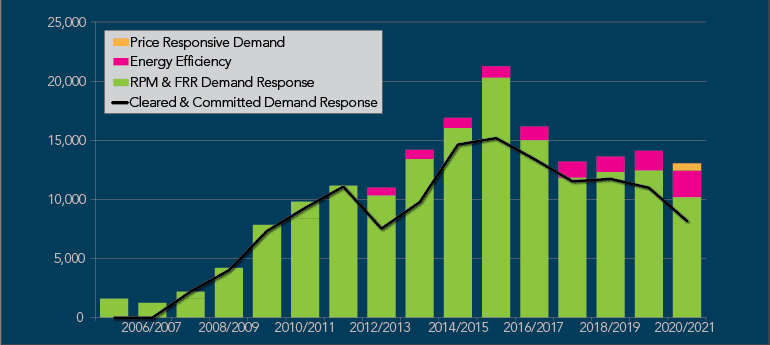FERC Rejects Revisions to Mid-Atlantic Grid Operator’s Demand Response Program

The Federal Energy Regulatory Commission on June 27 turned down a proposal by PJM Interconnection LLC to require demand response to conform to the requirements of supply-side capacity performance resources. The agency found that the changes would improperly charge load-serving entities participating in the grid operator’s price-responsive demand, or PRD, program by not providing a credit that reflects the full value of demand reductions during the annual peak. Resources offering into PJM’s capacity market are expected to be available throughout the year.
FERC sided with PJM’s market monitor Monitoring Analytics LLC and public interest groups, which argued that the revisions would limit the capacity that PRD can commit and inaccurately reflect the program’s demand reduction capabilities. The commission explained that the proposed method to calculate the demand reduction credits based on the lesser of summer and winter load reduction for load-serving entities participating in the PRD program is inconsistent with their capacity obligations, which are based on annual coincident peak demand.
PJM argued that the revisions would address disparities between demand and capacity performance resources, ensuring their availability to provide energy and reserves when called upon, irrespective of technology type.
Marketing Analytics emphasized that “nominal PRD value should be determined in accordance with how customers actually pay for capacity, i.e. based on the summer peak and not on the winter peak.”
Public interest groups, including the Natural Resources Defense Council and Sierra Club, argued that the PRD rules must be consistent with how entities are billed for capacity service, which should be based on demand during PJM’s annual peak, because “PRD is not a supply resource nor even similarly situated to one.”
Price-responsive demand allows consumers to control their energy expenditures by changing their power consumption pattern in response to wholesale prices. PJM gives load-serving entities an opportunity to designate a portion of their load as price-responsive in order to reduce their bills for energy and capacity.
EnerKnol Pulses like this one are powered by the EnerKnol Platform—the first comprehensive database for real-time energy policy tracking. Sign up for a free trial below for access to key regulatory data and deep industry insights across the energy spectrum.
ACCESS FREE TRIAL